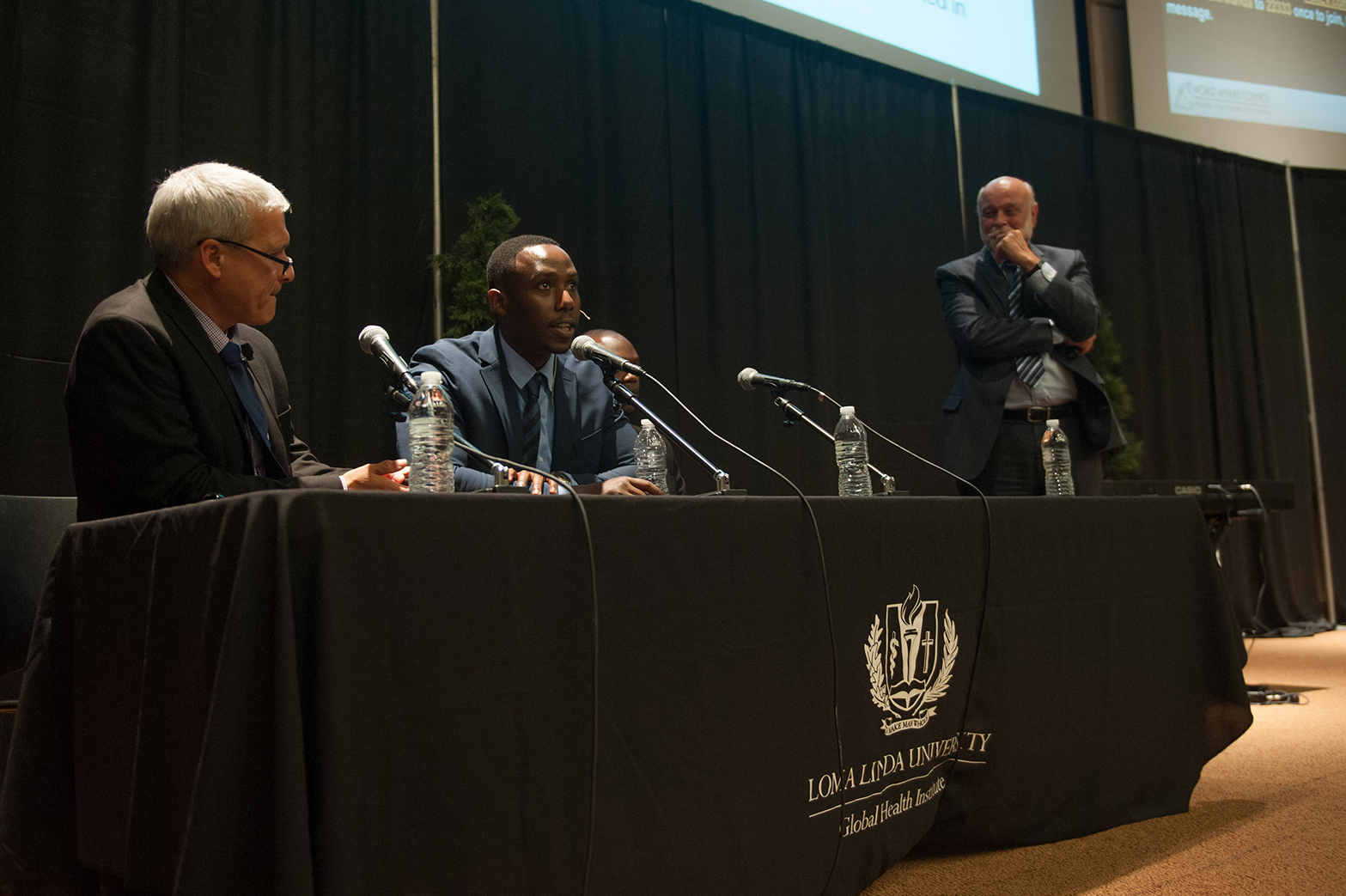
A quarter-century has elapsed since the 1994 genocidal campaign in Rwanda that took an estimated 800,000 lives in fewer than 100 days. Loma Linda University Health, in partnership with the World Affairs Council of Inland Southern California, hosted an event to examine lessons learned and why society can sometimes forget.
The May 22 presentation and panel discussion featured first-person stories that shed light on the human condition and how individuals can be agents of change.
Loma Linda University Health President Richard H. Hart, MD, DrPH, said the event was meant to recognize and remember a story that still haunts one of the most rapidly developing countries in Africa.
The keynote speaker, Emmanuel Habimana, is an independent filmmaker and activist who has dedicated his life to speaking about human rights and the consequences of mass atrocities. His testimony of surviving the genocide in Rwanda was told through clips of the National Geographic film Komora: To Heal, which he co-directed. Habimana told of the horrors of genocide and how orphans and other survivors have coped with the consequences.
Habimana said that by sharing his story he hopes to provide others with the strength and hope to push through the difficulties of life.
Two panelists also offered their insights.
Carl Wilkens, MBA, former head of ADRA in Rwanda, was the only American who decided to stay in Rwanda to help save lives after the genocide began. Together with Rwandan colleagues, Wilkens helped save hundreds of lives by bringing food, water and medicine to clusters of orphans trapped around the city of Kigali.
"Shared humanity is one of the most important things that we need to grab a hold of when we think of genocide,” Wilkens said. “We need to remember that we are all connected by a shared humanity.”
Aimable Ngendahimana, PhD, faculty in the department of Pharmaceutical and Administrative Sciences at Loma Linda University School of Pharmacy, was a child in Rwanda during the genocide against the Tutsi. He said he chooses to remember his family’s values in order to keep their loving spirit moving forward.
The program is available for viewing at the Loma Linda University Health Facebook page and YouTube channel.
